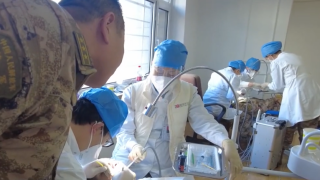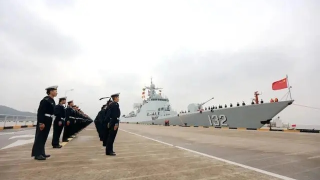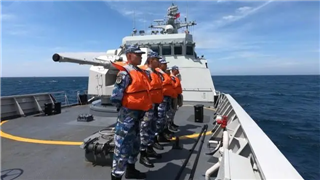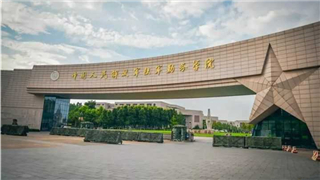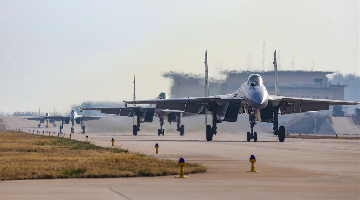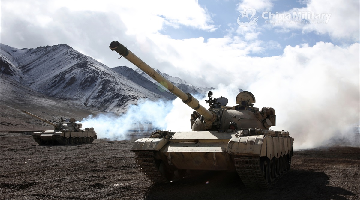By Wang Qiang
Accompanied by the hype of the "China Threat Theory", the US intelligence agencies have successively shifted their focus from the war on terrorism to dealing with the so-called China Threat. The US Central Intelligence Agency (CIA) has set up the China Mission Center, and the US Department of Defense and the State Department have successively established China working groups and invested a lot of resources in China-related intelligence work. The CIA has also increased the recruitment of Chinese-speaking employees and even shortened the security review process to shorten the recruitment process. This series of actions marks that the US will form a "national team" to enter the field of cognitive warfare against China. It also reflects the serious strategic anxiety of the US in terms of ideology.
Ideology was often a factor used by the US to exert influence on China for quite a long time in the past. However, as the role of economic and trade relations as the cornerstone of bilateral relations has significantly weakened, the ideological factor has become prominent in the strategic competition between China and the US, and the US has begun to believe that it is being challenged by China in terms of ideology. The US tends to interpret and respond from an ideological perspective to many emerging issues. As a result, the two parties in the US have gradually abandoned their policy of engagement with China and started to suppress and contain China in many fields. The US intelligence agencies stepped up as a national team and clearly believed that China poses an "ideological threat" to the US. It aims to use the will of the government to mobilize its national resources and concentrate all efforts to win the cognitive warfare against China.
In the past, the US investment in cognitive warfare against China was mainly limited to the media, network, and communication tools. It was more of a fragmented topic creation and guidance, and the integration and utilization of fragmented information on social media and social networks were not enough. Chinese audiences can easily identify and avoid these routines from communication nodes such as public intellectual and verified users with many followers. As the national team moves from behind the scenes to the front, the US will pay more attention to using various means to influence and change the core ideological elements such as national consciousness, concepts, and beliefs of the target country's nationals. The US is no stranger to this set of moves because it is essentially the peaceful evolution routine that the CIA is best at. It is nothing more than applying a micro-psychological model and adding modern information processing technology.
In recent years, this Cold War mentality and ideological bias of the US has been reflected in many aspects. For example, some politicians have used the COVID-19 pandemic as an excuse to publicly discredit China's image, promote the so-called China's economic collapse theory, and threw out a lot of stirring-up cognitive warfare arguments including "China virus threat theory", "virus weapon conspiracy theory" and "new yellow peril theory" to incite and provoke the dissatisfaction of the Chinese people, and serve the peaceful evolution strategy of the US to contain China's rise and maintain its hegemony.
As the leader of Five Eyes, the US has already established intelligence networks with other members, and every move of the CIA will have an important impact on the intelligence agencies of its allies. In early July, heads of the British MI5 and US FBI met and made remarks to smear China. The British said that its actions against China had increased sevenfold in just four years. The systematic linkage of the Five Eyes to contain China is manifested in the cognitive field, and its influence has spilled over to a higher level. The small circles and small groups formed by them are a challenge to the international multilateral governance system.
The CIA was busy responding to the US' so-called war on terrorism in the past 20 years, which occupied a large number of intelligence resources. As the US withdrew from Afghanistan, the CIA's budget channels were naturally affected. How to obtain new budgetary resources has become the top priority for the CIA.
In fact, the CIA's shift of attention to China will create a new wave of competition among US government agencies, especially intelligence agencies. Unlike the Cold War period when the US consciously invested all its resources in confrontation and competition with the Soviet Union, the US has a lot of troubles now and it is unable to take care of itself. Despite all these, the US still wants to confront China and it can only be implemented through the internal resources of the administrative departments. This shows that such an approach may not achieve the desired results.
(The author is a military observer)
Editor's note: Originally published on huanqiu.com, this article is translated from Chinese into English and edited by the China Military Online. The information and opinions in this article do not necessarily reflect the views of eng.chinamil.com.cn.
